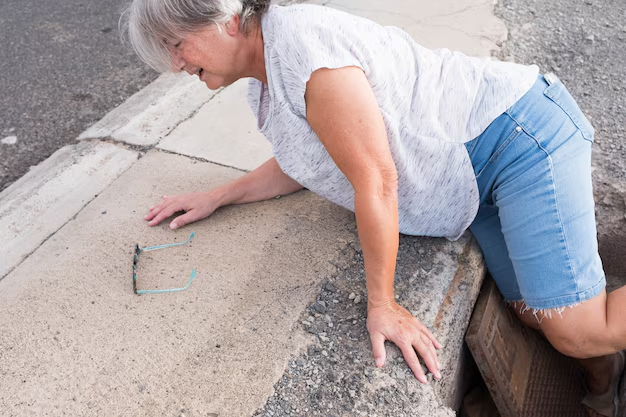Understanding Shingles: What Causes This Condition and How to Manage It
If you've ever had chickenpox, you might think you're done with it. But have you heard of shingles? This condition, often associated with a painful rash, affects about one in three people in their lifetime. It's not just a rash but a condition that can significantly impact your quality of life. But where does it come from, and why do only some people experience it? Let's explore what causes shingles and how you can manage your risk.
What Exactly Is Shingles?
Shingles, also known as herpes zoster, is a viral infection caused by the varicella-zoster virus (VZV), the same virus that causes chickenpox. After someone has had chickenpox, the virus lies dormant in the nerve tissue near the spinal cord and brain. Years later, the virus can reactivate as shingles.
The Symptoms of Shingles
Shingles is characterized by a painful rash that typically appears on one side of the body, often as a strip of blisters wrapping around the trunk. Symptoms can include:
- Pain, burning, or tingling in the affected area.
- Red rash that starts a few days after the pain.
- Blisters that break open and crust over.
- Itching or sensitivity to touch.
In some cases, shingles can lead to complications like postherpetic neuralgia, where pain lasts for months or even years after the rash has healed.
Why Does Shingles Occur?
The exact cause of why VZV reactivates is not well understood, but there are several factors believed to trigger it. Understanding these factors can help manage and mitigate the risk.
Age and Immune System Health
As people age, the likelihood of developing shingles increases. This is largely because the immune system weakens with age, making it harder to keep viruses dormant. Persons over 50 are more likely to experience shingles, and the risk increases significantly as they age.
Stress
Stress is not just a mental burden; it has physical implications too. High-stress levels can weaken the immune system, increasing the likelihood of the dormant VZV waking up and causing shingles.
Compromised Immune System
People with weakened immune systems—due to conditions such as HIV, cancer, or immunosuppressive drugs—are at a higher risk for shingles. These conditions can suppress the immune response needed to keep VZV inactive.
History of Chickenpox
Yes, you've guessed it right: only those who had chickenpox can develop shingles. If you never had chickenpox or the chickenpox vaccine, you typically won't develop shingles.
Can Shingles Be Prevented?
Completely preventing shingles might not be possible, but there are steps you can take to lower your risk.
Vaccination
The shingles vaccine is an effective way to prevent the condition. For adults aged 50 and older, the Shingrix vaccine is recommended because it boosts your immune system's ability to keep the virus dormant.
Healthy Lifestyle
While you can't change your history with chickenpox, you can keep your immune system robust. A balanced diet, regular exercise, and adequate sleep are good starting points. Reducing stress through practices like yoga or meditation can also be beneficial.
How Is Shingles Diagnosed and Treated?
Recognizing the symptoms promptly can make a big difference in managing shingles effectively.
Diagnosis
Healthcare providers typically diagnose shingles based on the distinctive rash and pain. In some cases, a sample from a blister may be tested to confirm the presence of the varicella-zoster virus.
Treatment Options
Early treatment can help shorten the duration of a shingles outbreak and reduce the risk of complications. Common treatments include:
- Antiviral medications: These can help to speed up healing and reduce the severity of the condition.
- Pain relievers: Prescription or over-the-counter medications can help ease the discomfort.
- Calamine lotion or cool compresses: These are often recommended to help alleviate itching and discomfort.
Coping with Postherpetic Neuralgia (PHN)
If you develop PHN, managing pain becomes the primary concern. Different medications, including tricyclic antidepressants or anticonvulsants, might be prescribed by a healthcare provider to help manage the condition.
Avoiding Contagion
While you can't catch shingles from someone who has it, you can catch chickenpox if you've never had it or haven't been vaccinated. Here are some ways to prevent spreading VZV:
- Avoiding contact with the rash or blisters.
- Cleaning the affected area gently.
- Ensuring the rash is covered.
- Those with shingles should stay away from pregnant women, newborns, and immunocompromised individuals to prevent potential complications.
Emotional Impact of Shingles
It's not just the physical aspect of shingles that's challenging; the condition can also take a psychological toll. The pain and discomfort might lead to sleep disturbances, and the visible rash can affect self-esteem. Support from family and friends can make a lot of difference in managing these emotional challenges.
Support Groups and Resources
Joining a shingles support group can provide emotional relief and practical advice. Knowing that you're not alone can be comforting.
The Bottom Line
Shingles is a condition driven by a combination of factors like age, immune system health, and past illnesses. While you can't change your medical history, being proactive in maintaining a healthy lifestyle and staying informed about vaccinations can go a long way in minimizing your risk. Understanding this condition better can empower you to take actions that matter.
Quick Summary: Shingles at a Glance
- 👶 Age Factor: Risk increases after age 50.
- 🦠 Dormant Virus: Reactivation of VZV (chickenpox virus).
- 💉 Vaccination: Shingrix is recommended for those over 50.
- 🛑 Risk Reducers: Healthy lifestyle, stress management.
- 👥 Contagion Caution: Avoid contact with the shingles rash.
- 🩺 Diagnosis & Treatment: Antivirals and pain management crucial.
- 🙌 Support: Leverage emotional and community support.
Understand these key aspects, and you'll be well-prepared to tackle shingles should it arise. Keep a balanced and informed approach, and know that resources are available to support you in managing this condition effectively.

